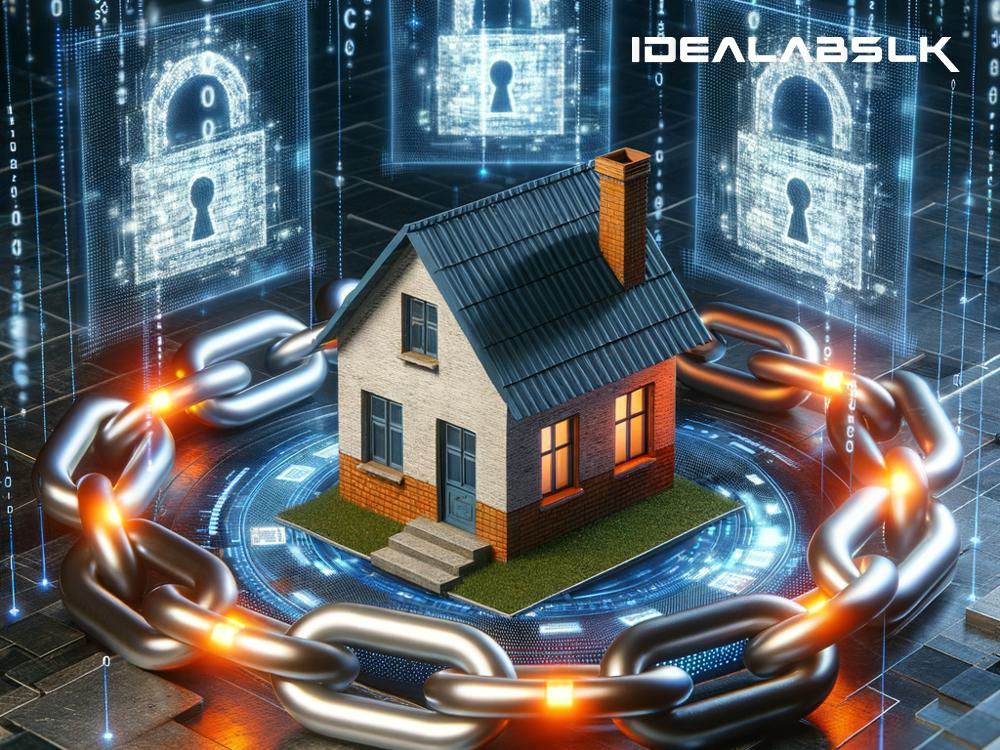Understanding the Power of Blockchain in Real Estate Transactions
In today's digital age, the real estate industry is undergoing a significant transformation, thanks to the advent of blockchain technology. This groundbreaking technology offers a new and secure way to conduct real estate transactions that could potentially eliminate many of the current challenges and inefficiencies. But, what exactly is blockchain, and how can it revolutionize the real estate sector? Let’s break it down into simple terms.
What is Blockchain?
Imagine a ledger or a record book that is not held by one single person or entity but is distributed across a network of computers around the world. This record book keeps track of transactions, and once a transaction is entered, it cannot be altered or deleted. This makes the system extremely secure and almost immune to fraud. That’s blockchain in a nutshell.
The Current Challenges in Real Estate Transactions
Before diving into how blockchain can revolutionize real estate, let's highlight some current challenges in the industry:
- Lack of Transparency: Traditional real estate transactions often involve multiple parties and complex paperwork, making the process opaque and sometimes confusing for buyers or sellers.
- Fraud and Errors: The current system is prone to human error and, in worst-case scenarios, fraudulent activities, due to the reliance on paper documents and the involvement of various intermediaries.
- Time-consuming Processes: The existing transaction process is lengthy and cumbersome, involving a series of steps that can extend for days or even months.
How Blockchain Can Help
Blockchain technology offers viable solutions to address these issues, making real estate transactions more secure, transparent, and efficient.
Enhanced Security
Since each transaction on a blockchain is encrypted and linked to the previous transaction, it creates a chain that is extremely difficult to alter, reducing the risk of fraud. Additionally, the decentralized nature of blockchain means there's no single point of failure, making hacking attempts much more challenging.
Increased Transparency
Blockchain operates on a system of distributed ledgers, which means every transaction is recorded simultaneously across multiple computers. This level of transparency ensures that every party involved in the transaction has access to the same information, reducing misunderstandings and disputes.
Streamlined Processes
Blockchain can simplify and accelerate the real estate transaction process by removing the need for middlemen such as brokers, lawyers, and banks. Smart contracts — self-executing contracts with the terms of the agreement directly written into code — can automate many steps in the buying and selling process, from verification of funds to transferring property titles.
Real-World Applications and Benefits
The application of blockchain in real estate is not just theoretical; it's already being implemented in various ways, offering tangible benefits:
- Tokenization: This involves dividing property into shareable tokens that can be easily bought or sold, making real estate investment more accessible to a wider range of people.
- Property Management: Blockchain can streamline the management of rental properties by automating payments, maintenance requests, and even lease agreements through smart contracts.
- Land Registry: By storing property titles on a blockchain, the process becomes more transparent and secure, significantly reducing the risk of title fraud.
The Road Ahead
While the integration of blockchain in real estate promises to make transactions quicker, safer, and more transparent, there are still challenges to overcome, such as regulatory hurdles, the digital divide, and the need for standardization across the industry. However, as technology continues to evolve and stakeholders become more familiar with its benefits, blockchain is poised to become a cornerstone of the future real estate market.
Conclusion
The potential of blockchain to revolutionize real estate transactions is immense. By offering a secure, transparent, and efficient way to conduct transactions, blockchain technology not only addresses many of the current challenges in the industry but also opens up new opportunities for investment and development. As we continue to navigate through the digital transformation of the real estate sector, blockchain stands out as a game-changing technology that could redefine how we buy, sell, and manage property in the future.

